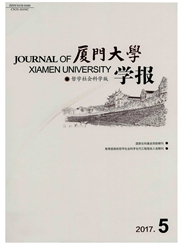

 中文摘要:
中文摘要:
欧元区主权债务危机爆发以来,货币联盟的财政一体化及财政转移问题引起了学界的关注。货币联盟的最优财政转移规则应以消除两国产出缺口差为目标。财政转移能够改善货币联盟福利,且福利所得随着本土偏好、政府支出产出比、冲击持续性、冲击波动率、价格和工资粘性的增加而增加。最优规则优于钉住消费缺口、价格通胀及工资通胀的简单规则。债务援助和财政转移的福利比较表明,当受援国只归还一部分债务,债务援助福利与财政转移一致;当债务利率高于无风险利率,债务援助福利小于财政转移。
 英文摘要:
英文摘要:
Since the outbreak of euro zone sovereign debt crisis,fiscal integration and fiscal transfer in a monetary union have raised academic attention. The optimal fiscal transfer rule in a monetary union should eliminate the output gap difference of two countries. Welfare analysis shows that fiscal transfer improves the welfare of monetary union,and welfare gain increases with home bias,the ratio of government spending to output,the persistence and volatility of shock,price stickiness and wage stickiness increasing. The optimal rule is better than the rules targeting difference in consumption gaps,price inflation,and wage inflation. Comparing the welfare of debt assistance and fiscal transfer shows that,when the recipient repays partial debt,the effect of debt assistance is same as that of fiscal transfer and when the interest rate of debt is higher than the risk-free interest rate,the welfare of debt assistance is less than that of fiscal transfer.
 同期刊论文项目
同期刊论文项目
 同项目期刊论文
同项目期刊论文
 期刊信息
期刊信息
